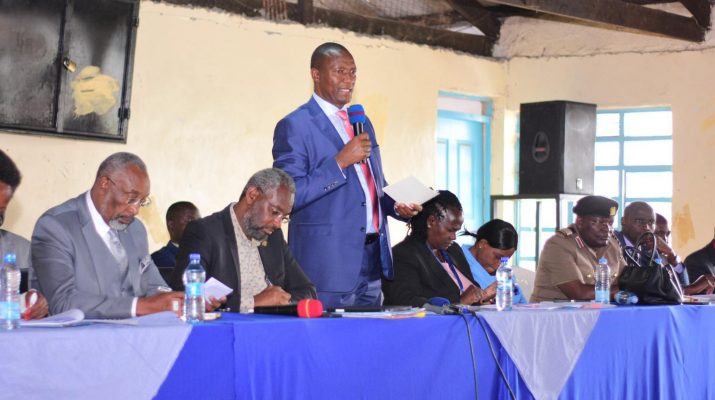Nyandarua Governor Moses Badilisha has called for registration of learners and subsequent capitation for Early Childhood Development Education (ECDE) learners as a way of ensuring quality education is extended to them.
Badilisha noted that capturing the learners’ details in the National Education Management Information System (NEMIS) will also ensure total and seamless transitioning of the learners to primary school.
Speaking while giving views to the Work Party on Education Reforms Committee, the governor said quality education for the learners was only possible with proper funding for the ECDE programme and training of teachers on the Competency Based Curriculum (CBC).
“About 80 percent of our budget to this sector goes to recurrent expenditure and little is left for development and training. Counties should therefore be supported through grants and capitation to bridge the gap,” he said.
He told the Committee led by University of Nairobi Vice Chancellor Prof Stephen Kiama, that the County was better placed to host a Sports Academy noting that the county had favorable weather for sports men and women to train.
“Considering a sports academy in the county will also help cater for students who performed well in extra curricula activity. As we prepare a master plan for a sports city let us also look into how we can start this academy. We have land adequate for establishment of a University yet 10 years down the line, we have none,” regretted Badilisha, while lobbying for the establishment of a University.
Prof. Kiama noted that the task force was mandated to seek views and recommend appropriately to inform a sound education system that will serve the needs of the citizens.
“The committee will collate all views from pupils, teachers, parents and other stakeholders on whether the grade six learners will transition to secondary school or not among others, and advise the president for a uniform direction,” he added.
Among the views captured were whether the junior high school be domiciled in Primary or secondary schools, with parents, learners and stakeholders lobbying for primary schools, unlike the recommendations for secondary schools.

